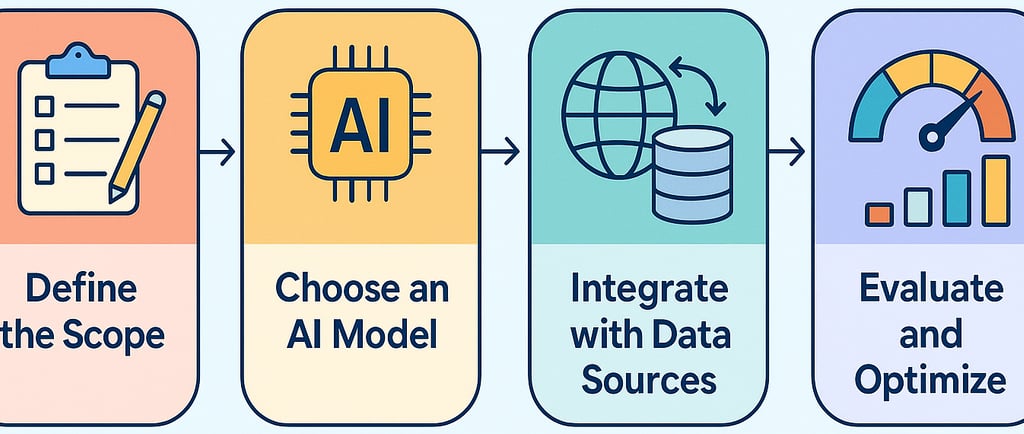AI-Powered Knowledge Retrieval: Let Algorithms Find Your Information
How business leaders can implement AI to transform knowledge management
Syed Irfan
6/2/20252 min read


Introduction
Imagine your team could instantly access the precise information they need no more digging through emails, documents, or Slack threads. AI-powered knowledge retrieval makes this possible, revolutionizing how businesses manage and access information.
For business leaders and founders, implementing AI in knowledge management isn't just about adopting new technology; it's about enhancing efficiency, reducing costs, and staying competitive. Let's explore how to make this transformation a reality.
Understanding AI-Powered Knowledge Retrieval
At its core, AI-powered knowledge retrieval uses artificial intelligence to locate and present information from vast data sources efficiently. Unlike traditional keyword searches, AI understands context, intent, and relevance, delivering more accurate results.
Key Technologies Involved
Natural Language Processing (NLP): Enables AI to understand and interpret human language.
Machine Learning (ML): Allows systems to learn from data patterns and improve over time.
Retrieval-Augmented Generation (RAG): Combines information retrieval with content generation, providing comprehensive answers.
Vector Databases: Store data in a format that AI can efficiently search and retrieve.
Benefits for Business Leaders
Implementing AI-powered knowledge retrieval offers several advantages:
Enhanced Decision-Making: Access to accurate information leads to better strategic decision making.
Increased Productivity: Employees spend less time searching for information, focusing more on value-added tasks.
Cost Reduction: Automating information retrieval can reduce operational costs.
Improved Customer Service: Quick access to information enables faster and more accurate responses to customer inquiries.
Steps to Implement AI-Powered Knowledge Retrieval
1. Assess Your Needs
Identify areas where information retrieval is time-consuming or error-prone. Common areas include customer support, internal knowledge sharing, and compliance documentation.
2. Choose the Right Tools
Select AI tools that align with your business needs. Consider factors like scalability, integration capabilities, and user-friendliness. Tools like Azure OpenAI and Cognitive Search can be effective for creating AI-powered chatbots that interact with your data.
3. Prepare Your Data
Ensure your data is organized and accessible. This may involve digitizing documents, cleaning data, and setting up appropriate storage solutions.
4. Integrate AI Solutions
Work with your IT team or external partners to integrate AI tools into your existing systems. This includes setting up APIs, configuring databases, and training AI models on your data.
5. Train Your Team
Educate your employees on how to use the new AI tools effectively. Provide training sessions and resources to facilitate adoption.
6. Monitor and Optimize
Continuously monitor the performance of your AI systems. Gather feedback from users and make necessary adjustments to improve accuracy and efficiency.
Real-World Example
Prudential implemented an AI-powered knowledge management system developed with Alltius, automating content retrieval for employees. This system reduced customer support costs by $50,000 per month and improved employee productivity by making essential information more accessible.
Key Takeaways
AI-powered knowledge retrieval enhances efficiency and decision-making.
Implementing AI requires careful planning, the right tools, and team training.
Real-world examples demonstrate significant cost savings and productivity gains.
Explore
Discover blog posts, photos, and videos here.
Write to me
connect@syedirfaaan.space
© 2025. All rights reserved.

